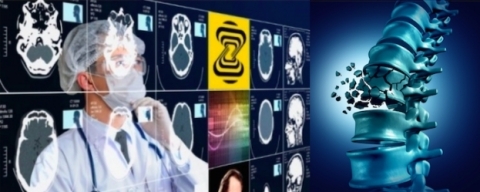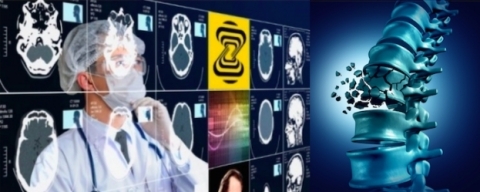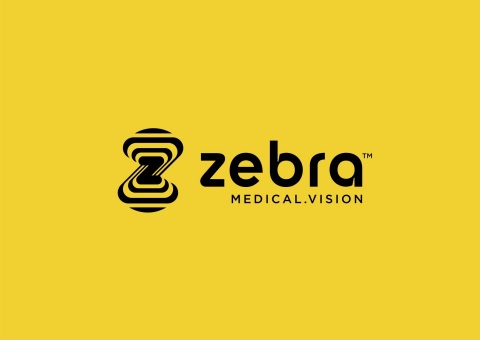SHEFAYIM, Israel--(BUSINESS WIRE)--Zebra Medical Vision (http://zebra-med.com/) is announcing today the latest algorithm to be included in its growing Deep Learning Imaging Analytics platform. The algorithm, capable of detecting vertebral fractures, is the latest addition to a line of automated tools that were announced in the past year, among them algorithms that automatically detect low bone mineral density, breast cancer, fatty liver, coronary artery calcium, emphysema, and more.
While less than one third of vertebral compression fractures (VCFs) are effectively diagnosed, VCFs are remarkably common, affecting up to one in four postmenopausal women and nearly one in seven men over the age of 65. More than two million osteoporotic fractures occur annually in the US alone, significantly impairing the lives of those affected and their families, and costing the healthcare system nearly $17 billion USD. Detection of VCFs is thus paramount in the effort to decrease osteoporotic fractures – the most morbid of which are hip fractures. Diagnosing VCFs is of critical importance for implementation of both primary therapeutic and secondary preventative interventions.
"Research has shown that radiologists miss up to 50% of vertebral fractures, since they are usually focused on looking for other features,” says Dr. Kassim Javiad, Clinical Lead of the UK Fracture Liaison Service report from the Department of Rheumatology, Oxford University Hospitals at the University of Oxford. “In the UK, with our proven coordinated care programs for effective fracture prevention (Fracture Liaison Services), we believe that early detection of such fractures can yield both better care and significant healthcare cost savings.” VCF is estimated to cost the NHS £1.5 billion annually.
The Zebra VCF algorithm automatically identifies and localizes compression fractures. The algorithm uses deep learning to differentiate between compression fractures and more ubiquitous degenerative endplate changes and osteophytes. This knowledge assists healthcare providers in accurately identifying people at risk and placing them under supervision or fracture prevention programs to reduce the risks of subsequent osteoporotic fractures.
“Osteoporotic fractures have a deeply negative impact on the lives of patients and their caregivers. Implementation of our VCF algorithm can help prevent a large number of these fractures - allowing for better preventative and overall care, as well as reducing long term healthcare costs for providers,” adds Elad Benjamin, Co-founder and CEO of Zebra Medical Vision.
The new algorithm, once released commercially, will be offered as part of Zebra’s Imaging Analytics engine for care providers, as well as on its Profound platform (https://profound.zebra-med.com/), which allows users to upload their imaging scans and receive automated insights regarding their imaging data.
About Zebra Medical Vision:
Zebra Medical Vision uses machine and deep learning to create and provide next generation products and services to the healthcare industry. Its Imaging Analytics Platform allows healthcare institutions to identify patients at risk of disease, and offer improved, preventative treatment pathways to improve patient care. Headquartered in Kibbutz Shefayim Israel, the Company was founded in 2014 by Co-Founders Eyal Toledano, Eyal Gura, and Elad Benjamin and funded by Khosla Ventures, Marc Benioff, Intermountain Investment Fund, OurCrowd and Dolby Ventures. For more information visit www.zebra-med.com/




